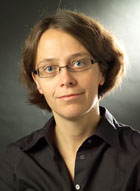Legal rights threatened by poor interpreting services
New research shows that most Danish judges have experienced problems with incorrect interpreting in legal cases involving non-Danish speakers on trial. It compromises the accused, who does not receive a fair trial.
In a new research project, researchers from Aarhus University, Business and Social Sciences, have documented that three out of four judges have encountered interpreters lacking the necessary competencies. For example, interpreters are not always sufficiently fluent in Danish, their interpreting is imprecise and incomplete, they do not possess the necessary knowledge about the legal system or legal terminology, and they do not have the required technical interpreting skills.
According to the researchers, Tina Paulsen Christensen PhD and Associate Professor Bodil Ringe Martinsen, the interpreters’ lack of expertise compromises the legal rights of non-Danish speakers.
- When an interpreter is unable to interpret exactly what is being said or is unable to express the subtleties of the language, it means that the non-Danish speakers are unable to understand everything that is being said during the trial, and are therefore unable to defend themselves as effectively as someone who speaks Danish, says Associate Professor Tina Paulsen Christensen.
This, according to the researchers, is because there are not enough qualified interpreters available for the courts. Of the interpreters working at the courts, 80% do not have any interpreting qualification. It challenges basic human rights:
? Denmark can only guarantee that all citizens, irrespective of which language they speak, have the same legal rights and are treated fairly if they are able to understand and participate in the legal process. Non-Danish speakers can only be guaranteed these basic human rights if the legal system uses qualified interpreters, says Associate Professor Tina Paulsen Christensen.
Shortage of qualified interpreters
The shortage of qualified interpreters is primarily due to the fact that today it is only possible to do a university degree in interpreting, the so-called interpreting and translation programme, at Aarhus University in the main languages English, German, Spanish and French, and at Copenhagen Business School in English. In addition, Metropolitan University College offers an academy profession degree programme in interpreting for fee-paying students. However, by far the majority of the interpreters working at the courts have no interpreting degree.
? This means that the courts are unable to live up to the provision of the Danish Administration of Justice Act (Retsplejeloven) that hearings must, in so far as possible, take place with the help of a qualified interpreter, says Associate Professor Tina Paulsen Christensen, who, together with Bodil Ringe Martinsen, recommends that Denmark invests additional resources in more and better interpreting programmes.
The shortage of qualified interpreters is particularly acute within the minority languages. This is a serious problem, because most court interpreting involves these languages.
? The fact of the matter is that the number of qualified interpreters within the minority languages is so small that the courts are largely forced to use non-professional interpreters who have neither the required knowledge nor training, says Associate Professor Bodil Ringe Martinsen.
Researchers’ recommendations
Based on the study’s conclusions, the researchers’ main recommendation is that more interpreting programmes be offered within a wider range of languages, including the minority languages, as well as all the official EU languages. Alternatively, a long-term course for interpreters to give them the necessary interpreting competencies.
Tina Paulsen Christensen and Bodil Ringe Martinsen are urging the courts to enter into dialogue with interpreting researchers to find out how to develop programmes for interpreters so that Denmark can train more interpreters within more languages.
Secondly, the researchers recommend that judges and lawyers receive training in how to best work with interpreters.
Finally, to ensure the highest possible quality of the interpreting, they recommend that the courts use qualified interpreters to the greatest possible extent. Moreover, it is important that the courts introduce quality control procedures in order to weed out bad interpreters. For this purpose, the researchers suggest that the Courts of Denmark set up a dedicated interpreting office, which would be responsible for testing and approving interpreters as well as carrying out regular quality control.
Facts
- The survey was conducted as an online questionnaire among Danish court lawyers employed at the Danish city courts and high courts. A total of 170 court lawyers completed the questionnaire. In the questionnaire, the court lawyers were asked what they expect of legal interpreters, and about any negative experiences they have had with legal interpreters.
- As at 31 March 2003, there were approx. 2,500 interpreters registered with the Danish National Police, covering approx. 140 languages/dialects. According to the Danish National Police, by 11 November 2011 this figure had fallen to 1,984 active interpreters. The number of languages/dialects is deemed to be unchanged.
- From 2008 to 2010, the number of registered criminal cases and civil cases involving interpreters rose by 51.8% and 38.1%, respectively.
- In May 2011, the Association of Danish Authorised Translators (Translatørforeningen) listed the number of state-authorised translators and interpreters: English (173), German (54), French (41), Spanish (27), Italian (9), Turkish (5), Russian (4), Polish (4), Portuguese (2), Norwegian (2), Arabic (1), Finnish (1), Flemish (1), Greek (1), Dutch (1), Icelandic (1), Romanian (1) and Slovakian (1).
- The entire project can be read at http://bcom.au.dk/da/forskning/publikationer/retstolkensrolle/ (In Danish)
Contact

Tina Paulsen Christensen, Associate Professor, PhD
Aarhus University, Business and Social Sciences
Email: tpc@asb.dk
Direct tel.: +45 8716 4827

Bodil Ringe Martinsen, part-time lecturer
Aarhus University, Business and Social Sciences
Email: brm@asb.dk
Direct tel.: +45 8716 4873
